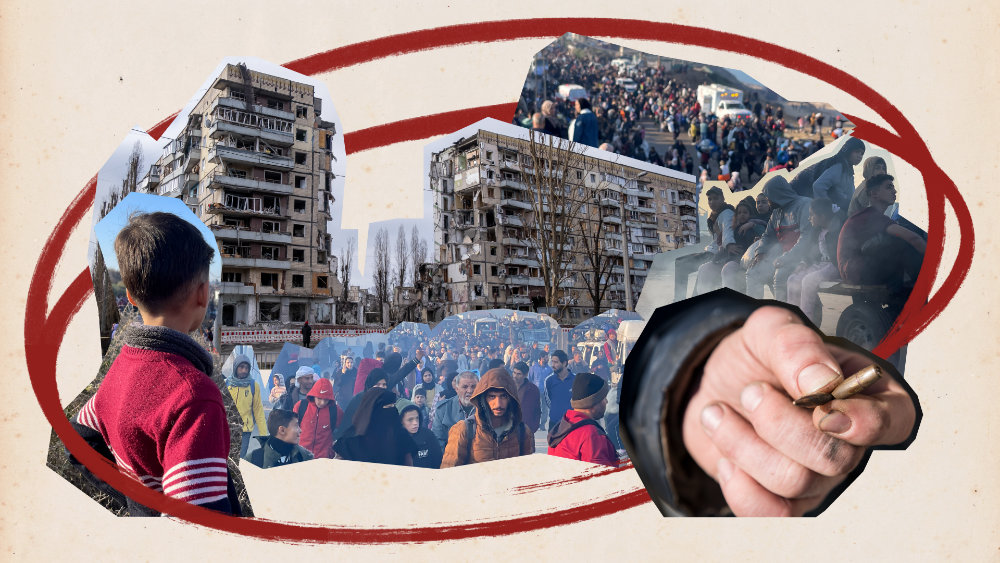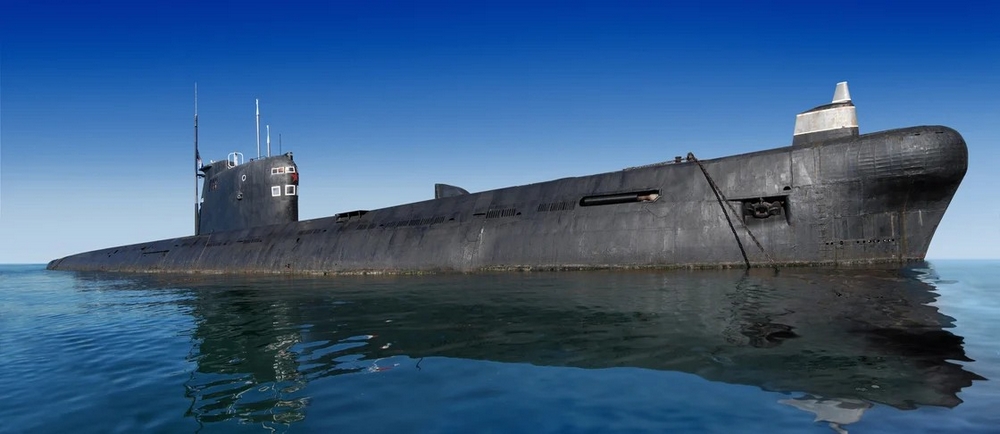The Fourth Geneva Convention was the first humanitarian law convention dedicated to protections for civilians during armed conflict. Amongst its numerous protective rules, it also provides the main rules of international humanitarian law (IHL) governing the exceptional practice of internment of protected persons – detention of such persons for security reasons during international armed conflict.
In this post, and in commemoration of the 75th anniversary of the Geneva Conventions this year, Group Captain Tim Wood, Provost Marshal of the New Zealand Defence Force, shares his views and practical insights with regards to procedures for internment review of civilians. Drawing on operational experience, he considers some of the characteristics of review bodies which are essential for them to properly fulfil their role.
Editor’s note: The forthcoming update of the Commentary on the Fourth Geneva Convention – an ICRC project seeking to provide current interpretations of the Conventions to enhance their understanding, dissemination and faithful application in today’s armed conflicts – will consider and address the rules explored in this blog series.
Whereas prisoners of war may be interned for the duration of an armed conflict – subject to certain exceptions, notably for seriously wounded or sick prisoners – civilians may only be interned so long as the grounds for such internment exist. As provided for in Article 132 of the Fourth Convention, each interned person ‘shall be released by the Detaining Power as soon as the reasons which necessitated his internment no longer exist’.
When a state has decided to intern a protected person, the Convention requires that that state review the validity of this decision, and periodically assess that the internment is still justified. In a state’s own territory, the Convention requires that internment review be carried out by an ‘appropriate court or administrative board’, whereas in an occupied territory, the Convention makes reference to a ‘regular procedure’ before a ‘competent body’. In both the state’s own territory, and occupied territory, what is essentially required is an initial expeditious reconsideration of the decision to intern, followed by periodic review on a six-monthly basis.
Group Captain Wood, the first question we have for you is, what is the purpose of review of internment orders? Why is it important?
The purpose of internment review is, effectively, two-fold. In battlefield conditions, an initial, expeditious review, at least in the New Zealand context, is intended to determine if an individual should be released, transferred to civilian authorities for criminal investigation or interned for imperative reasons of security. My operational experience in Iraq (when serving with the armed forces of the United Kingdom) was that an individual who was deprived of their liberty could be released or interned. Due to circumstances, transfer to the civilian authorities was highly unlikely. Many people were released. However, others remained interned because they were deemed to constitute a sufficient threat to justify the exceptional and severe measure of internment. This decision was often based upon an overall threat assessment, which included the individual’s answers during questioning after capture.
The New Zealand Military Manual (NZ Military Manual) protects the right of a person in detention to challenge the grounds for their detention. According to such doctrine, a review should be conducted upon receipt of a challenge. A legal adviser (LEGAD) should be involved. The decision and reasons for it ‘are to be recorded in writing and are to be provided to the person in question, the Protecting Power and/or ICRC…’ (Rule 12.10.21, NZ Military Manual).
Thereafter, review is more routine. The NZ Military Manual refers to a review ‘by the commander of the New Zealand place of detention once every 28 days’, irrespective of whether or not the person requests it (Rule 12.10.23). Initial and subsequent reviews are also demanded by United Kingdom military doctrine, and the United Kingdom Ministry of Defence Joint Doctrine Publication (UK JDP) similarly refers to the Detention Review Authority ‘undertaking an impartial and fair review…at an early stage and at frequent intervals thereafter…’ (Annex 1B para. 1B.10).
As already stated in the 1958 ICRC Commentary to the Fourth Convention, the body designated to conduct reviews of internment must be independent and impartial. It is difficult to argue against this approach. However, in battlefield conditions, ensuring an independent and impartial review can come with certain challenges, not least getting the right people and processes in place.
Some would argue that the military cannot be independent and impartial in reviewing internment orders. What would you say to that?
Inevitably, questions will be asked about impartiality. For example, it might be argued that a military lawyer, serving in the armed forces of the state that has deprived persons of their liberty, cannot exercise an objective review of whether the decision to intern that person is justified. From a personal perspective I would rebut such an assertion. LEGADs are trained, and selected for deployed operations, in order to implement the law, without fear or favour.
Professionally, independence is reinforced by policy and orders. For example, the NZ Military Manual sets out that the independent Detention Authority “is not to be subject to the command or influence of the commander of the … force responsible for having captured or apprehended the person in question or responsible for their detention” (Rule 12.9.17). Separation from command and command influence should extend to the LEGAD.
So in your view, it is important for the body reviewing internment to have access to a LEGAD?
Yes, and I provide an illustration from my own operational experience.
During the initial stages of military operations in the southern provinces of Iraq, large numbers of people were deprived of their liberty in order to ‘clear the battlespace’. The majority of the people held were Iraqis. However, there were foreign nationals included in the mix. Faced with such numbers, the British military convened competent tribunals to determine whether such people should be released or on what basis they would continue to be detained. Military Manuals set out that a review process should include a military LEGAD.
Subsequent inquiries into the conflict asserted that, in more settled conditions, a review should be led by a judicial officer, for example, a member of the civilian judiciary, including Assistant Judge Advocates General (who in the UK’s military justice system are civilians rather than military personnel). In a dynamic environment, however, the conduct of an internment review can be complex. Consideration must be given to the implementation of fair, impartial and independent procedures. However, it is also necessary to consider the safety of the parties involved with an internment review. Not only must one consider the safety of the individual who is interned but also the safety of a civilian judicial officer. Inserting untrained civilians, of any profession or trade, into a conflict zone, comes with risk. If the risk is assessed to be excessive a compromise may have to be struck. Therefore, it may not always be possible to include a civilian judicial officer in the review process, at least until the security situation has become more settled. In the absence of a judicial officer, the presence of a LEGAD should always be ensured, because this at least provides assurance that legal process will be applied to the review procedure.
From what you say it seems you view separation between the chain of command ordering internment and the internment review body to be important. This strikes to the heart of the matter – why must internment review be independent and impartial?
There is no great mystery to this answer. Despite assertions to the contrary, there remains a risk that if a commander of forces that captured or apprehended a person in question is required to decide upon continued deprivation of liberty, that commander’s objectivity could be compromised. To manage the risk, to protect all concerned, and to ensure that the person in question is not unlawfully detained after the fog of war has lifted, introducing a separate, independent body of decision-makers, including a different LEGAD, is better practice. The inclusion of civilians, as recognized by the NZ Military Manual and the UK JDP, provides a greater degree of separation from the chain of command. But, because of the dynamic nature of conflict, it is not necessarily without its own risks.
UK doctrine also refers to a Detention Authority. The Joint Doctrine Publication (JDP) Captured Persons describes the Detention Authority as being responsible for making initial detention decisions and supervising on all matters of detention except reviews. The Detention Authority “need not be independent of the chain of command but must ensure in exercising their functions that they are satisfied that both a legal basis and proper grounds exist for the detention of each individual” (JDP Captured Persons, para. 4.22).
Reflective of the greater resources of the UK’s armed forces, the JDP also describes the independent Detention Review Authority. This body is responsible for reviewing decisions made by the Detention Authority to intern or detain. Pertinently, the Detention Review Authority “must be drawn from personnel outside of the operational chain of command.” The Detention Review Authority should be assisted by a LEGAD who, “should not be the same legal adviser to the Detention Authority.”[1]
Hence the UK’s Detention Review Authority is equivalent to New Zealand’s Detention Authority. Irrespective of the nomenclature, the UK and New Zealand adopt a similar approach to review.
Could you share some of your own experiences from the process of an internment review?
In my case, I was ordered to a camp in Iraq to assist the in situ LEGAD. I was not privy to the initial decision to detain any of the people held in the camp. The numbers were so significant that little time was spent trying to ascertain a reason why each person was detained, other than their location at any given time. As a result, I was confident that any conclusions that my team made in relation to the status of each person were independent and impartial from the chain of command. Indeed, on occasions, the legal teams raised with command their obligations in accordance with the Geneva Conventions, because of our concerns about the way certain people in detention were being treated.
As the conflict evolved from an international armed conflict to a non-international armed conflict involving counterinsurgency and law enforcement elements, other review bodies faced challenges as to independence and impartiality. Subsequent inquiries noted that review of detention and internment occurred with regularity. However, concerns were raised about the fact that decision makers and advisers appeared to be from amongst those responsible for capture or apprehension in first instance.
It is often remarked upon that limitations in resources and/or capabilities cannot be relied upon as a reason for breaching IHL and IHRL obligations. Again, this is difficult to argue against. However, where specialist advisers or LEGADs are limited in number, one strives to do the best as possible. Nevertheless, state parties must do more in this regard. If independence and impartiality of advice can be achieved by deploying more specialists into a theatre of operations, the solution seems pretty obvious.
What other characteristics of internment review bodies would you say are important?
Although I have emphasized the importance of ensuring a different body of decision-makers and reviewers regarding internment orders, this is not necessarily a panacea. One cannot presume that simply introducing people from outside the chain of command will result in a reasoned decision. Hence the reference in the New Zealand Military Manual to “a person or persons with appropriate experience in fact-finding and with a knowledge of military matters” (see Rule 12.9.17).
I would add that the person or persons also need to be prepared to overcome obstacles and resistance from the chain of command that captured or apprehended the person in question. When command believes that its decisions are being questioned or challenged, the reception can be distinctly frosty, to which I can attest. Accordingly, the internment reviewer also needs to be given the authority to make binding decisions regarding the validity of the internment, whether the interned person should continue to be interned, for how long, or whether they should be released.
What about the review itself? What kind of review should the review body be conducting?
In my experience, it is easy to produce policy that requires a regular review of the decision to intern. It is also comparatively easy to conduct a review. However, there are reviews and there are reviews. In other words, a review is only of any value to the person deprived of their liberty if it is thorough and effective. Subsequent inquiries of the conflict in Iraq posed questions about certain reviews. Too often the review consisted of a restatement of the previous facts and opinions. It lacked anything that could be described as an inquisitorial process, to the extent that the review was little more than a “rubber-stamp” of the previous decision.
It is acknowledged that the weight of numbers may have influenced the process that emerged. However, for a review to have any value, and for a state party to abide by its international and domestic legal obligations, it is not enough to conduct a superficial process. Deprivation of liberty must be for good reason. Each review should substantively engage with and challenge the reasons for the internment, with a view to ensuring that the reasons are valid and that internment is justified. It is not enough to confine the review to matters of procedure and the reviewer must have the courage (Tū Kaha), commitment (Tū Tika) and integrity (Tū Māia) to challenge the decision to intern. If the reasons which justify the decision to intern a person are no longer robust to scrutiny, a decision should be made to release that person.
What about the person interned? Do you think that there are rights or facilities which must be afforded to the person interned which are related to, or even essential for, independent and impartial review?
This question sparks the debate about the applicable body of law, i.e. IHL or international human rights law. Is one body of law lex specialis, are the bodies of law complementary, or does IHRL dislodge IHL in the circumstance of internment? I do not intend to engage in this debate in this post.
In terms of the review procedures, the UK JDP is instructive in this regard. It provides for a series of rights and safeguards which would protect a person undergoing internment review. This includes: information regarding the review procedure which must be transmitted to the person concerned (See para. 1B.11); and rights of attendance, participation and representation (See paras. 1B.28–1B.31).
With regards to representation, it should be noted that the person subjected to the review is not entitled to full-fledged legal representation but rather what is described as assistance by a representative during the review. The statement that there is no right to legal representation, during review, may offend many. Is the person deprived of their liberty disadvantaged by the fact that they cannot be legally represented, whereas the Review Authority is receiving legal advice? That is a matter for discussion.
As a military lawyer, it is progress that the necessity of objective legal advice being available to the Reviewing Authority is captured in doctrine. That is a big step to ensuring that the decisions of the Reviewing Authority are independent and impartial. However, are they the best informed decisions if a person deprived of their liberty is restricted in how they can present their case? There may be more to do in this regard.
Author’s note: Whilst I speak from a position of experience of deployed military operations that included internment and detention of people, the opinions and remarks included in this blog are my own. The content should in no way be interpreted to represent the official position or policy of the Governments or armed forces of New Zealand or the United Kingdom. Any errors of law, policy or interpretation thereof, contained in this blog are the author’s own.
Frequent references were made throughout the text to the following two manuals:
- United Kingdom, Ministry of Defense, Joint Doctrine Publication 1-10, Captured Persons, Fourth Edition (‘UK JDP’).
- Manual of Armed Forces Law – Law of Armed Conflict – DM 69 (2 ed) Volume 4 (‘NZ Military Manual’)
References
[1] (On the complementary functions of the Detention Authority and Detention Review Authority, see Joint Doctrine Publication, Annex 1B, paras 1B.4–10).
See also:
- Camilla G. Cooper, Internment pursuant to the Fourth Geneva Convention during an international armed conflict: practice and reflections from Norway, June 6, 2024
- Jelena Pejic, Civilian internment in international armed conflict: when does it begin?, May 23, 2024
- Mikhail Orkin, The internment of protected persons and the Fourth Geneva Convention, May 16, 2024





